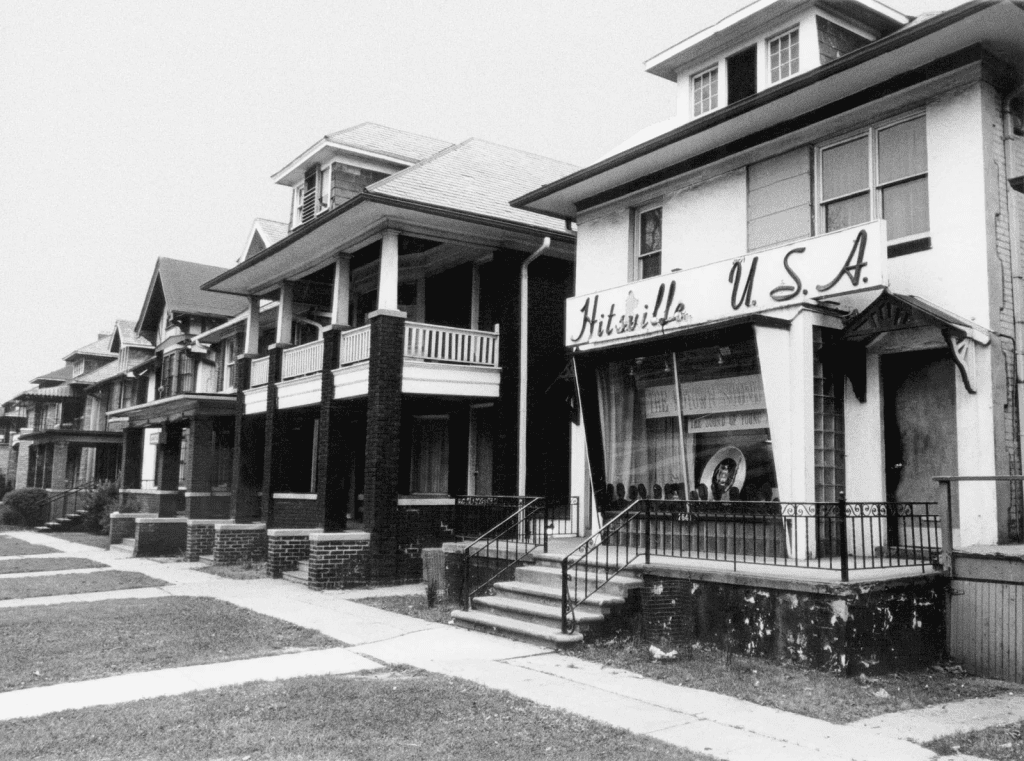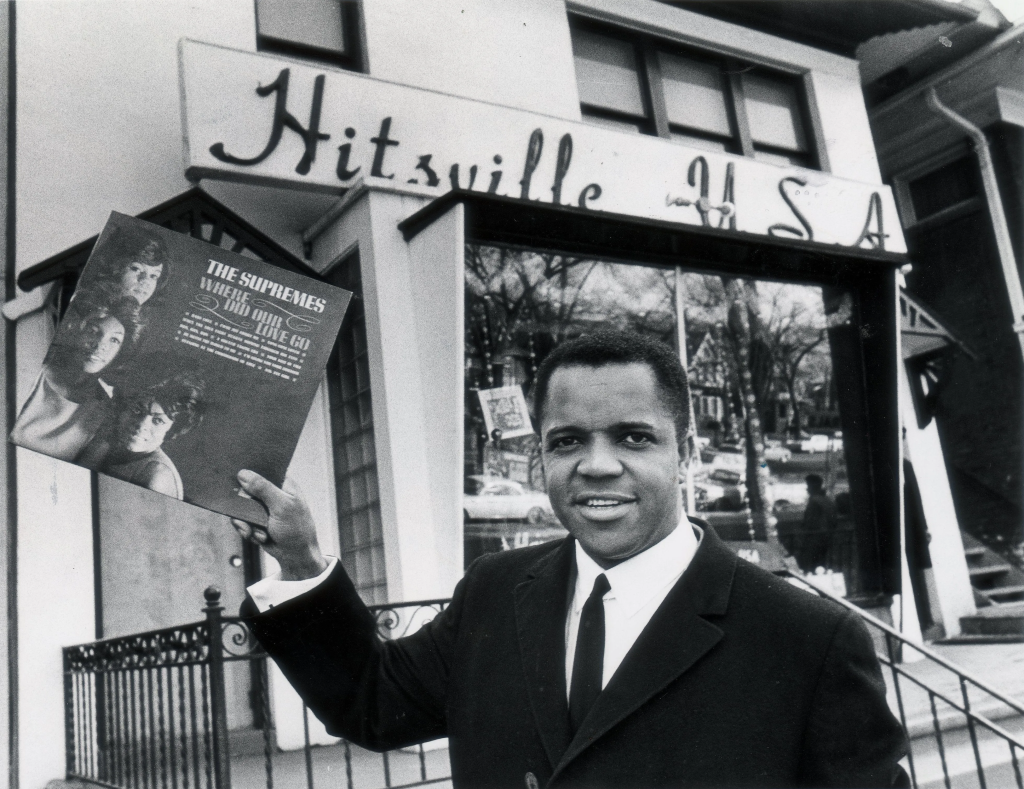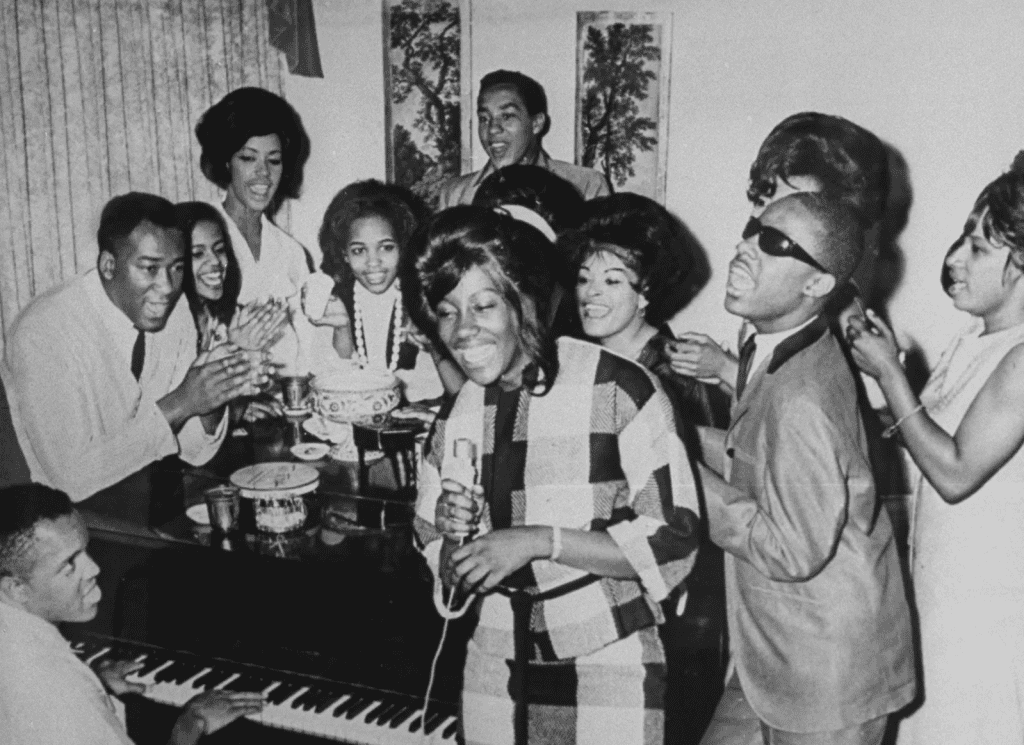In 1959, with little more than ambition, raw talent, and eight hundred dollars borrowed from his family, Berry Gordy Jr. launched a record label from a small Detroit home. What he created was more than just a music company it became a cultural revolution. Motown Records redefined American sound, broke racial barriers, and turned everyday voices into icons. Its legacy still echoes today, not only in music but in the very soul of popular culture.

The Beginning of a Vision
Berry Gordy Jr. was no stranger to hustle. Before music, he was a boxer, a car factory worker, and a songwriter with hits under his belt. But he dreamed of something more. He wanted to give young Black artists a platform and to create music that could connect with everyone regardless of race or background.
With an eight-hundred-dollar loan from the Gordy family’s savings fund, he founded Tamla Records in January 1959. Soon after, Motown was born, named after the Motor City of Detroit. From the start, his goal was clear: blend the emotional storytelling of soul with the catchy hooks of pop to make music that would move America.

Hitsville U.S.A.: A Factory of Stars
Motown’s first headquarters was a modest house on West Grand Boulevard. Above the front door, Gordy hung a sign that read “Hitsville U.S.A.” It was a bold declaration, and soon enough, it was true.
Video:
The History of Berry Gordy Jr & Motown Records | Billboard #BlackHistoryMonth
Gordy approached Motown like an assembly line, inspired by Detroit’s auto industry. He recruited songwriters, producers, musicians, and vocal coaches to shape raw talent into polished performers. Every artist who entered the house received guidance not just in music, but in etiquette, stage presence, and style.
It wasn’t long before the house started turning out gold records. The Miracles’ “Shop Around” in 1960 was Motown’s first million-selling single. That success opened the floodgates to a wave of unforgettable talent.
Launching Legends: From Marvin to Diana
One of Motown’s greatest gifts was its ability to discover and nurture remarkable talent. The label introduced the world to Marvin Gaye, who started as a session drummer before becoming a soul icon with songs like “What’s Going On” and “Let’s Get It On.”
The Supremes, fronted by Diana Ross, became international sensations. Their polished elegance and infectious tunes helped them become the most successful American vocal group of the 1960s.
The Temptations brought powerful harmonies and choreographed moves that wowed audiences. Stevie Wonder, signed at just eleven years old, grew into one of music’s most innovative artists. Smokey Robinson, both a performer and a gifted songwriter, played a key role in defining Motown’s lyrical style.
Each act was different, but they all carried that signature Motown sound an irresistible blend of rhythm, emotion, and sophistication.

A Sound That Broke Barriers
Motown wasn’t just about music. It was a movement. At a time when segregation still gripped much of the country, Motown’s artists crossed over to white audiences and dominated the pop charts. For the first time, Black musicians were being heard, seen, and celebrated on a massive scale.
Video:
Motown Minute #1 – The History of Motown
Berry Gordy believed that talent and excellence could break any barrier. He was right. Motown helped create a bridge between communities and cultures, using melody and harmony as its tools. Its artists performed on integrated stages, appeared on national television, and helped reshape the mainstream perception of Black excellence.
The Motown Legacy Today
Though Motown’s golden era faded by the late 1970s, its influence remains deeply woven into the fabric of American music. The label moved from Detroit to Los Angeles, and its roster evolved with the times. But the heart of Motown the message of unity, love, and perseverance never changed.
Modern artists from Bruno Mars to Beyoncé draw inspiration from Motown’s style. Its music continues to be sampled, covered, and honored in films, TV shows, and award ceremonies.
Motown also paved the way for Black-owned labels and businesses in the entertainment industry. It proved that with vision, discipline, and soul, you could build something lasting something powerful.

Conclusion: One Dream, One Sound, One Movement
What began with eight hundred dollars and a dream in a Detroit house changed the world forever. Motown Records gave the world a soundtrack of love, heartbreak, joy, and change. Berry Gordy’s vision was about more than just hit records. It was about giving voice to a generation and rewriting the rules of what American music could be.
Motown wasn’t just a label. It was a heartbeat. And that beat still lives on, echoing across generations, reminding us that great music knows no boundaries.


